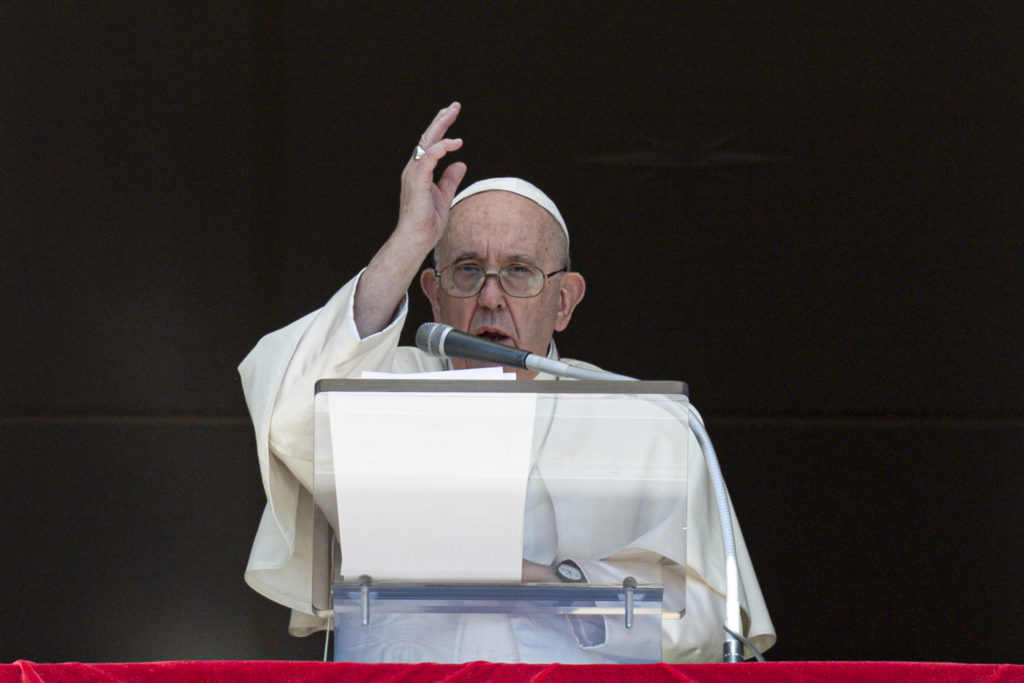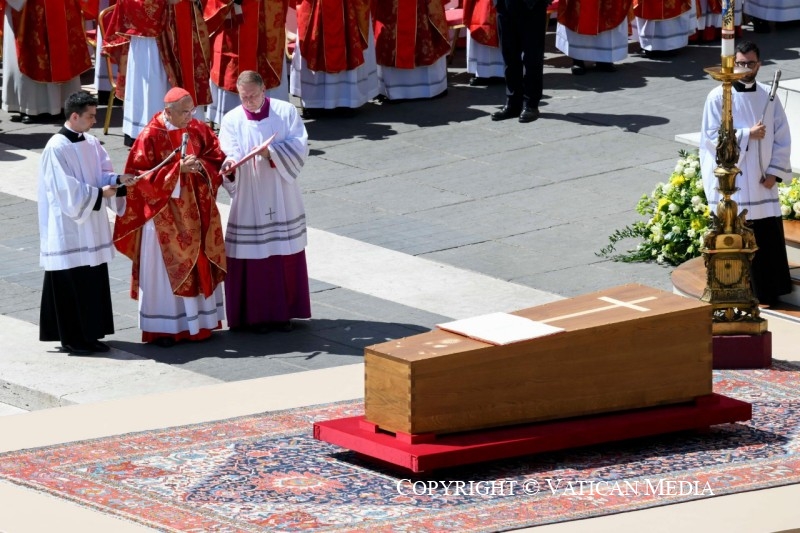“We are called to be creative in doing good with the prudence and the cleverness of the Gospel “
The Pope's words at the Angelus prayer

At 12 noon today, the Holy Father Francis looked out of the studio window in the Vatican Apostolic Palace to recite the Angelus with the faithful and pilgrims gathered in St Peter’s Square.
These are the Pope’s words in introducing the Marian prayer:
Before Angelus
Dear brothers and sisters, Buongiorno!
The parable in the Gospel of today’s liturgy (cf. Lk 16:1-13) seems a bit difficult to understand for us. Jesus tells a story about corruption: a dishonest manager who steals and then, after being discovered by his master, acts shrewdly to get out of the situation. We ask ourselves: what is this shrewdness of the corrupt manager about, and what does Jesus want to tell us?
In this story, we see how the corrupt manager ends up in trouble because he took advantage of his master’s property. Now he must give an account, and he will lose his job. But he does not give up, he does not resign himself to his fate and does not play the victim. On the contrary, he acts immediately with shrewdness, he looks for a solution and is creative. Jesus uses this story as a way to put before us a provocation when he says: “The children of this age are more shrewd in dealing with their own generation than are the children of light.” (v. 8) It happens that those who move in darkness, by certain worldly standards, know how to get by even when in trouble, they know how to be more shrewd than others. Instead, Jesus’ disciples, namely ourselves, sometimes have fallen asleep or are naive, not knowing how to take the initiative to find ways out of difficulties (cf. Evangelii gaudium, 24). For example, I am thinking of times of personal or social crisis, but also of Church crisis: sometimes we allow discouragement to overcome us, or we start to complain and play the victim. Instead, Jesus says we can also be clever in following the Gospel, awake and attentive to discern reality and be creative to find good solutions for us and others.
But there is another teaching that Jesus gives us. Indeed, what is the shrewdness of the manager about, we ask? He decides to give a discount to those who were in debt, and so they become his friends, and he hopes they can help him when his master fires him. Before he was accumulating wealth for himself, but now he uses it in the same way by stealing to make friends who can help him in the future. Jesus then gives us a teaching on how we use material goods: “And I tell you, make friends for yourselves by means of dishonest wealth, so that when it is gone, they may welcome you into the eternal homes.” (v. 9). To inherit eternal life then, there is no need to accumulate goods in this world, but what matters is the love we will have expressed in our fraternal relations. This is what Jesus asks of us: do not use the goods of this world only for yourselves and selfishly, but use them to create friendship, to create good relationships, to act with charity, to promote fraternity and to show care for the weakest.
Brothers and sisters, even in our world today there are stories of corruption like the one in the Gospel: dishonest conduct, unfair policies, selfishness that dominates the choices of individuals and institutions, and many other murky situations. But we Christians are not allowed to become discouraged, or worse, to let go of things, remaining indifferent. On the contrary, we are called to be creative in doing good with the prudence and the cleverness of the Gospel, using the goods of this world, not only material but all the gifts we have received from the Lord, not to enrich ourselves, but to generate fraternal love and social fellowship. This is very important: through our behavior we can create social friendship.
Let us pray to the Blessed Virgin Mary so that she may help us be like herself, poor in spirit and rich in works of charity for one another.
Related

Mercy and the joy of the Gospel are two key concepts of Pope Francis
Exaudi Staff
26 April, 2025
9 min

Thousands of faithful bid farewell to Pope Francis in St. Peter’s Square
Exaudi Staff
26 April, 2025
2 min

Saying Goodbye to Francis
Exaudi Staff
26 April, 2025
2 min

Pope Francis Gifts a Statue of Our Lady of Luján to Gemelli and the Catholic University of the Sacred Heart
Exaudi Staff
25 April, 2025
2 min
 (EN)
(EN)
 (ES)
(ES)
 (IT)
(IT)

